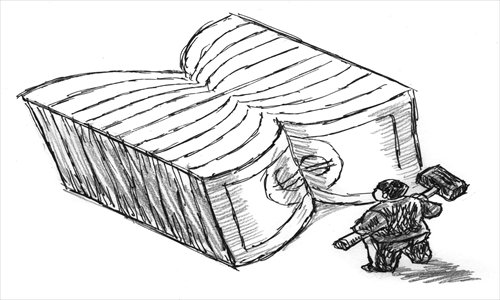ASEAN struggles in anti-corruption fight

Under the motto of "One Vision, One Identity, One Community," ASEAN has been making painstaking efforts to integrate its 10 members into an economic, political and social union. One measure has been the establishment of an ASEAN-level anti-corruption network.
It started with the signing of a Memorandum of Understanding (MoU) by anti-corruption agencies from Brunei, Indonesia, Malaysia and Singapore in December 2004, which since then has served as the foundation for regional cooperation in combating corruption in Southeast Asia.
Most ASEAN members have joined this anti-graft pact, and pledged their commitment to working closely with each other through information sharing and capacity building.
No doubt the Southeast Asian countries are stepping toward the right direction on fighting against corruption with this MoU.
Rampant corruption has always been a cancer in the region.
Although Singapore, the most developed country in Southeast Asia, is recognized as one of the world's least corrupt by international rating agencies, most other ASEAN countries are ranked very low.
Six ASEAN members, including Indonesia, Vietnam, the Philippines, Laos, Cambodia and Myanmar, were ranked in the bottom half of the 2011 Corruption Perception Index developed by global NGO Transparency International.
Although the MoU is a promising sign, the lack of meaningful cooperation on anti-corruption reflects some fundamental weaknesses of ASEAN as an international organization, especially when sensitive political issues are concerned.
Despite the enthusiastic words about fostering regional integration in its official statements and documents, ASEAN is, after all, a very "soft" organization with little "hard" power.
Member states jealously safeguard their national sovereignty when the political leaders meet to discuss regional matters, especially on those politically sensitive matters.
ASEAN is aware of the damaging effects of corruption, but it benefits a small number of individuals, who are usually the ruling elites in many Asian countries.
This phenomenon makes it difficult, if ever possible, for national governments in ASEAN, who are accountable to different vested interests, to agree to the establishment of a regional anti-corruption agency which has the hard power to make and enforce punitive rules against corrupt individuals and families.
Different perceptions of national interests by ASEAN member states constitute another significant hurdle. One such example is the negotiations for an extradition treaty between Singapore and Indonesia in March.
Indonesia badly wanted an extradition treaty which could be easily renegotiated and renewed when it expires. Indonesia claimed that such a strong extradition pact could allow it to pursue alleged corrupt government officials and business people who fled to Singapore with their dirty money.
However, Singapore, a global business and financial hub, insisted that its own laws were sound enough to prevent corruption and money-laundering.
Reportedly, Indonesian House of Representatives speaker Marzuki Alie recently accused Singapore of being not serious about a "pure extradition treaty" as it linked the signing of such a treaty to conducting military training within Indonesian territory.
As regional economic integration steadily progresses in Southeast Asia, an institutionalized framework on anti-corruption at the ASEAN level is becoming increasingly important for all ASEAN members.
This, first of all, requires strong political leadership and commitment.
The political leaders must appreciate the trans-boundary effects of corruption as well as realize that it's critical for sustainable regional integration to be based on good governance in all ASEAN countries.
ASEAN should make anti-corruption a priority in its political and security agenda. Serious negotiations should be launched toward the making of an ASEAN anti-corruption agreement which establishes not only an ASEAN agency with enforcement and coordination powers against corruption, but also rule-based mechanisms on specific issues such as joint investigations of corruption cases, as well as, arrest and extradition of graft fugitives to their home country.
The author is an associate professor at the Faculty of Law and deputy director of the Centre for Asian Legal Studies at the National University of Singapore. opinion@globaltimes.com.cn